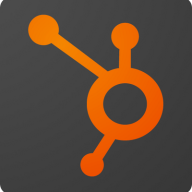

Salesforce Sales Cloud and HubSpot CRM are prominent competitors in the CRM software category. Based on the comparisons, Salesforce Sales Cloud seems to have the upper hand due to its comprehensive features and extensive ecosystem.
Features: Salesforce Sales Cloud is known for robust CRM tracking, extensive customization options, and a large ecosystem of applications available through AppExchange. It excels in sales process management and integrates smoothly with other marketing software. HubSpot CRM, on the other hand, is appreciated for its simplicity, ease of onboarding, and seamless marketing capabilities, with notable strengths in lead and sales tracking.
Room for Improvement: Salesforce Sales Cloud users find the platform complex and costly, with areas for improvement including outdated features, limited integration options, and reporting inefficiencies. It also has hidden costs that can be prohibitive for smaller businesses. HubSpot CRM could benefit from better pricing models and improved customization options for lower-tier licenses. Users also express a need for improved duplicate handling and expanded operational features.
Ease of Deployment and Customer Service: Salesforce Sales Cloud offers diverse deployment options including Public Cloud, Private Cloud, and On-premises, providing flexibility. Customer service varies based on support packages, with slower response times and costly premium support. HubSpot CRM is deployed primarily as a Public Cloud solution, praised for its ease of use and setup. Customer service is accessible but may require subscription for personalized support.
Pricing and ROI: Salesforce Sales Cloud is known for its high cost, with user-tier-based pricing deemed expensive but justified by its feature set and integration capabilities, offering significant ROI for larger organizations. HubSpot CRM offers a more budget-friendly option with a free version for small businesses and competitively priced paid plans. Its modular structure allows for purchasing only needed capabilities, making it cost-effective, though some users mention potential cost escalations as feature requirements increase.
Salesforce Sales Cloud is a fantastic tool but requires disciplined data entry by sales personnel and operations teams to maintain data quality.
We are not just implementing Salesforce Sales Cloud; we need to understand what the customer wants to achieve in 5 to 10 years.
HubSpot's customer service is excellent and fast.
Many users give it only a couple of minutes before moving on, so there should be ways for quick, direct access and follow-up, which is currently somewhat challenging.
There is always an account rep that's available, and there is a technical account rep that is available for every account.
I wouldn't say you go to Salesforce Sales Cloud for their customer support unless you purchase one of their premier plans, which is additional money.
Support requires a subscription and when taken, the service is pretty nice.
Handling around 100 to 150 users is fine.
There are a lot of enterprises using it, however, even as a GTM for HubSpot, their target market is predominantly SMB.
HubSpot CRM is a scalable solution.
Salesforce is highly scalable and operates efficiently.
Salesforce Sales Cloud is totally cloud native, requiring no additional effort for scalability.
Salesforce Sales Cloud's scalability is impressive as it grows easily with my organization's needs.
Salesforce Sales Cloud is very stable.
I have not experienced any degradation in Salesforce's performance.
HubSpot should establish some pre-deployable packages that, when contracted, offer basic functionality.
A better CRM can be achieved by providing more customization features.
The response time is slow.
If you're looking at other tools out there, for example SalesLoft or HubSpot, it's much easier to build those workflows and do automation.
Compared to AWS, it is slower, which could be a hindrance.
With today's generative AI capabilities like ChatGPT, it should be possible to directly communicate with the software rather than navigating through the entire system manually.
Without negotiation, costs can become expensive.
This happened for the first time because of the new CEO, Arundhati, who revolutionized pricing strategies, allowing discounts of 60-70% for Salesforce Sales Cloud in India.
Salesforce Sales Cloud is extremely expensive.
HubSpot stands out for its ease of use, especially with sequence creation compared to other CRM solutions.
The most valuable feature for me is when I encounter a company or a person, I can drop in their URL, and it pre-populates various details like address information and other contacts they might have.
The feature that I find valuable is the customer 360-degree view and the marketing automation.
Its easy-to-navigate interface aids in delivering clear vision and organization, especially for sales and business management.
Being able to pull reports in Salesforce Sales Cloud based on any of the fields that we have there and then building logic on those fields saves me time and also gives me visibility into what's going on with my teams across multiple departments, which is very helpful for us.
The Einstein Analytics and the inbuilt reporting are very useful for keeping track of pipeline movement.
| Product | Market Share (%) |
|---|---|
| Salesforce Sales Cloud | 2.4% |
| HubSpot CRM | 1.2% |
| Other | 96.4% |


| Company Size | Count |
|---|---|
| Small Business | 39 |
| Midsize Enterprise | 5 |
| Large Enterprise | 8 |
| Company Size | Count |
|---|---|
| Small Business | 55 |
| Midsize Enterprise | 26 |
| Large Enterprise | 40 |
HubSpot CRM is a comprehensive customer relationship management software that helps businesses manage their sales, marketing, and customer service activities. It offers a wide range of features, including contact management, email tracking, deal tracking, and task management.
With its intuitive interface and easy-to-use tools, HubSpot CRM allows users to streamline their sales processes, track customer interactions, and improve overall productivity. It also integrates seamlessly with other HubSpot products, such as marketing automation and customer service, providing a complete solution for businesses of all sizes.
Whether you're a small startup or a large enterprise, HubSpot CRM can help you organize and grow your customer relationships.
Salesforce Sales Cloud is a comprehensive tool lauded for its customization, ease of use, and integration capabilities. Its cloud-based nature offers seamless access and scalability, helping manage leads, opportunities, and workflows efficiently. Powerful reporting and dashboards enhance visibility and productivity.
Salesforce Sales Cloud serves as an essential aid for companies aiming to streamline sales processes. It integrates sales and marketing, manages customer data, and supports automation, which increases efficiency. Despite its expense and complex interface, its ability to forecast, track customer engagement, and automate key workflows stands out. Companies encounter challenges with system costs and integration issues, particularly regarding third-party applications and mobile functionality. Reporting and dashboards offer significant insights, although room for improvement exists. Licensing costs and storage fees are considerations for prospects, alongside the need for improved training and AI features. Users maximize the platform for sales pipeline management, forecasting, and operational analytics.
What are the most important features?Organizations across industries utilize Salesforce Sales Cloud from finance to healthcare for business development and CRM tasks. It is integral to managing accounts, leading pipelines, and aligning sales with marketing strategies. Firms improve customer relations and operational efficiency through its analytics and reporting capabilities.
We monitor all CRM reviews to prevent fraudulent reviews and keep review quality high. We do not post reviews by company employees or direct competitors. We validate each review for authenticity via cross-reference with LinkedIn, and personal follow-up with the reviewer when necessary.